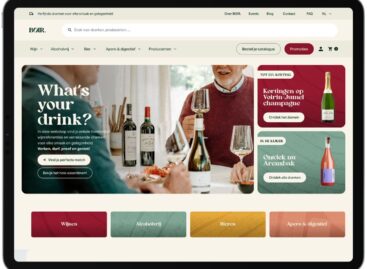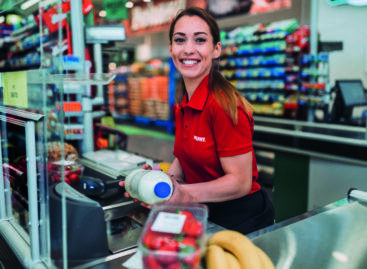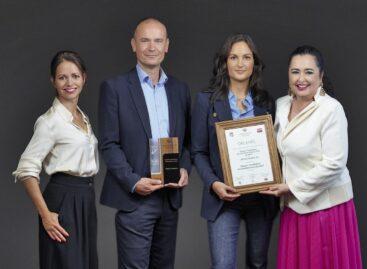Online shopping: Necessity has turned into convenience

Péter Klekner
CEO
Kifli.hu
Péter Klekner, CEO of Kifli.hu believes that the war, the price cap and high inflation caught everyone by surprise. “Reacting to these and maintaining the usual high level of service are the most important tasks now. Our mission is to have satisfied customers even now, when the economic conditions are bad. Much fewer shoppers would have started buying FMCG products online without the pandemic. By now many of these consumers have become convenience shoppers, understanding why online is better for them” – told the CEO, adding that home delivery is still the most popular.

István Juhász
managing director
foodpanda
István Juhász, managing director of foodpanda: “In Hungary foodpanda launched its own quick commerce service, called panda market, in December 2020, which revolutionised shopping.” Today foodpanda delivers anything that fits into a delivery bag, in less than 30 minutes. Besides Alma Pharmacies and Gyöngy Pharmacies, the products of Tesco, Penny, BioTechUSA and The Body Shop are also available on the foodpanda platform.

Shopping has been increasingly growing functional, because shoppers try to manage their time better
A slower growth rate

Tibor Székács
CEO
Avokado
Tibor Székács, CEO of Avokado: “The dynamics of the pandemic period have slowed down a bit by now in e-commerce, but at the same time demand has increased for same-day delivery. So far shoppers have been price-sensitive, but their time is now more and more important for them. Market players are facing strong competition, as consumer needs keep changing and online shops want to keep loyal customers.”

Edmund Kocsis
country manager
Supreva Magyarország
Edmund Kocsis, country manager of Supreva Magyarország thinks that click and collect grocery lockers are increasingly popular, and they are more eco-friendly as well. “Hungarian SMEs have a dynamic operating strategy, and together with their ability to adapt to market changes quickly, this has motivated them for making great progress in the FMCG sector’s digitalisation.”

Gábor Reszler
CEO
OnlinePríma.hu
Gábor Reszler, CEO of OnlinePríma.hu: “In 2021 online FMCG sales were still growing by more than 26 %, and generated a revenue of HUF 118bn. Although this growth rate was smaller than in 2020, there is still sales growth and it is expected to continue in the years to come. Even more so, because in more developed countries the share of online FMCG purchases is much higher than in Hungary. “
More often and in bigger quantities

Miklós Czeglédi
chief digital officer
Auchan
Miklós Czeglédi, chief digital officer of Auchan: “After the pandemic many shoppers started doing their grocery shopping in physical stores again, but we can see that those who were satisfied with online FMCG buying now combine the two forms of shopping.”

Martin Coulam
operations director
Tesco-Global Áruházak
Martin Coulam, operations director of Tesco-Global Áruházak Zrt.: “The number of online purchases rose sharply during the pandemic, together with the value of orders, and we had to react to this by increasing our capacity. This bigger demand hasn’t subsided since then.”

Márk Maczelka
head of communications
SPAR Magyarország
SPAR Magyarország Kereskedelmi Kft.’s head of communications Márk Maczelka talked to our magazine about home delivery being the most popular form of online shopping, which isn’t only convenient but fast as well, thanks to same-day delivery. “Those customers like pick-up points who don’t like to wait for the courier at home – all they need to do is drive to the designated parking space at a SPAR store, ring a bell and one of our colleagues shows up, placing the filled shopping bags in the boot of the car.”

Dr. János Rákóczi
commercial deputy
CEO
Közért+
Dr János Rákóczi, commercial deputy CEO of Közért+ Zrt. highlighted the fact that sales skyrocketed 54% in the online FMCG market in 2021, becoming the 4th biggest online category by now. “Quality, freshness, speed, precision, politeness, large product selection, easy order placement and a good price-value ratio are the most important factors in selling online” – said Dr Rákóczi.
Promotions and discounts

Ádám Fürjes
head of online marketing
Rossmann Magyarország
Rossmann Magyarország now also offers same-day delivery in the Budapest region. Head of online marketing Ádám Fürjes: “We deliver in less than 5 hours in Budapest and in 45 towns and villages in the region. Feedback from customers has revealed that they like this service not only because it is fast, but also due to the fact that they can pick one-hour delivery slots, so people can plan their days better.” The Rossmann app is very important, as the company’s experience is that almost 70% of customers visit the Rossmann Online Drugstores from smartphone or tablet.

Roland Kanyó
marketing and PR manager
dm
Roland Kanyó, marketing and PR manager of dm Kft. informed that online drugstores carve out an ever-bigger chunk of the market. “We think that the segment’s development will continue, as shoppers got used to the comfort online shopping offers. Dm customers receive the products ordered online in 2-3 days, but by using the Expressz service, they can collect their orders in 1.5 hour in the dm store of their choice” – explained Mr Kanyó.
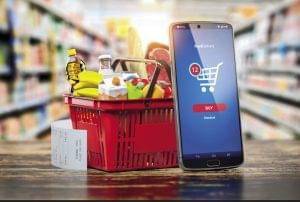
E-commerce has redefined shopping and the delivery market
Thinking about partners too
Users of the service can choose from nearly 6,500 foodpanda partners, and the company’s own delivery service is available in 45 locations. In August the company reacted to the growing market demand by extending the quick commerce solution called Logistics-as-a-Service – formerly only available to restaurants and partner stores – to external partners as well.
Avokado is increasing the number of partner stores, enlarging its product selection, conquering new geographical areas, optimising logistics services and improving its platform’s technological background in order to make Avokado a realistic alternative to visiting brick-and-mortar stores.
Expansion in Hungary and abroad
Supreva.com is a B2B international product platform that cooperates with a fintech partner to offer a buy-now-pay-later (BNPL) service. Customers who use this only have to pay in 60 days’ time, while retailers get their money in 7 days. In addition to this, Supreva delivers 100% free of charge if a purchase is made on the platform. They wish to enter foreign markets in the future.
Kifli.hu is typically used for medium or big shop, but the platform is also suitable for doing the small daily shopping. The company keeps improving and expanding its services based on customer feedback, e.g. smartphone app, entering new locations, etc. Online Príma’s plans include entering new parts of Budapest, so that the service becomes available in the whole city. The online shop is being modernised at the moment, online payment will be launched and a loyalty programme is also in the pipeline.
New technological background
Baby care is one of the most popular categories in Rossmann’s online shop. It is noteworthy that it is also in this segment where the buying habits differ the most online and offline. Customers can buy large-sized products in the online drugstores that aren’t available in physical stores. This March the Rossmann Online Drugstore was revamped and soon the app will also renew.
The dmApp was launched this year: this collects all services, products and coupons in the same place. Live Shopping debuted at dm this autumn, with dmLIVE streams – no other drugstore does anything like this in Hungary. For dm e-commerce isn’t something that just complements the physical stores of the chain, as the dm Online Shop is an integral part of the business.

Wide range, favourable price, good quality and fast delivery are the most important for shoppers
Shopper experience
Auchan’s chief digital officer told Trade magazine that service providers are forced to innovate, because there are more and more competitors – and not only at local level, but also on a regional scale. At the moment Auchan is working on adding new services. In line with the emergence of new-type consumer needs, Tesco has made great improvements in its online shop. For instance they introduced the Tesco Box Online Shop, from where customers all over Hungary can order thousands of long shelf life foods, household and hygiene products, which are delivered in 3-5 working day by the Hungarian Post. Tesco also started cooperation with foodpanda and Wolt: as part of this nationwide service, orders are delivered from more than 50 Tesco stores in half an hour. From early February customers can choose from about 15,000 SKUs at Tesco from Home, with same-day delivery.
SPAR Magyarország Kereskedelmi Kft. is making great efforts to expand its delivery area, and to set up click and collect points in more cities. Recently SPAR has realised development projects to improve the shopper experience and operating efficiency. This summer Közért+ Zrt. opened its new and innovative logistics centre in Törökbálint, where digital solutions contribute to better service quality and customer experience. Visitors of the kozertplusz.hu online shop can choose from thousands of – mostly Hungarian – food products, and a loyalty programme has also been launched. //
Fifteen percent of purchases are made online in the region
In the last 5 years the proportion of online sales climbed 9 percentage points to 15% in Central and Eastern Europe. According to a forecast by CBRE, in 4 years’ time online’s share will reach 20%. It is noteworthy that e-commerce’s growth rate was the smallest in Hungary in the region. Carmen Ravon, a CBRE’s head of retail occupiers CEE added that with the exception of 2020, offline shopping has been expanding too, and forecasts are also optimistic for this channel. Currently FMCG products have a 59% share in offline retail in Central and Eastern Europe.
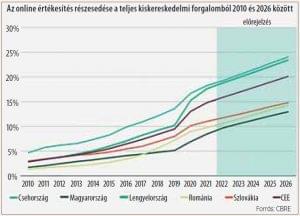
//
Carbon footprints of websites amount to tonnes, but they can be reduced
Sending a short e-mail with just text in it results in 4g harmful substance emission, the same quantity is 0.2g for a Google search, and visiting the opening page of an average website generates 0.5g emission.

How can the carbon footprint of a website be reduced? With simple steps such as uploading photos in smaller size and shorter videos, and optimising the working of the website. A Hungarian company called Carbon.Crane has developed an artificial intelligence based service, which measures and optimises the carbon footprints of websites. Experts say that this way carbon emissions can become up to 17 times smaller. //
dmLIVE Shopping: Shopping streamed live
Twice in September and on a weekly basis from October (every Wednesday from 19:00), dm will stream programmes live in the dm App.

Shoppers will get the chance to watch content that is both educational and inspirational, and they can comment on what they see real-time, ask questions and shop instantly – with exclusive discounts. Marketing and PR manager Roland Kanyó: “Dm’s experts will discuss beauty care, nutrition and lifestyle topics live during the dmLIVE Shopping streams.” //
Hungarian online shops gather momentum
Because of the worsening exchange rate, ordering online from abroad and paying in euros or dollars isn’t a good deal for shoppers anymore, so they have started to prefer Hungarian online shops. According to online shop expert Ferenc Surányi, managing director of M.I. Solution Kft., this is the ideal moment for Hungarian online shops to enter foreign markets. His start-up is developing the world’s first artificial intelligence software for online shops. //
Related news
Colruyt seeks expansion through drinks webshop Boir
Belgian retailer Colruyt Group opened a new webshop for drinks…
Read more >You can still shop in PENNY stores on December 24th
It is important for PENNY Hungary to ensure that its…
Read more >PENNY: committed to domestic values
In 2024 PENNY’s commitment to Hungarian products was particularly strong.…
Read more >Related news
They want it to be premium, but also sustainable – expectations of the youngest generation
GlobalData’s latest report, “Demographics in Retail and Apparel” – which…
Read more >Zsolt Liptai became the winemaker of the year
The Hungarian Wine Academy (MBA) has awarded Zsolt Liptai, the…
Read more >Tips for avoiding credit card fraud during the holiday season
The Christmas season is all about the joy of shopping,…
Read more >

